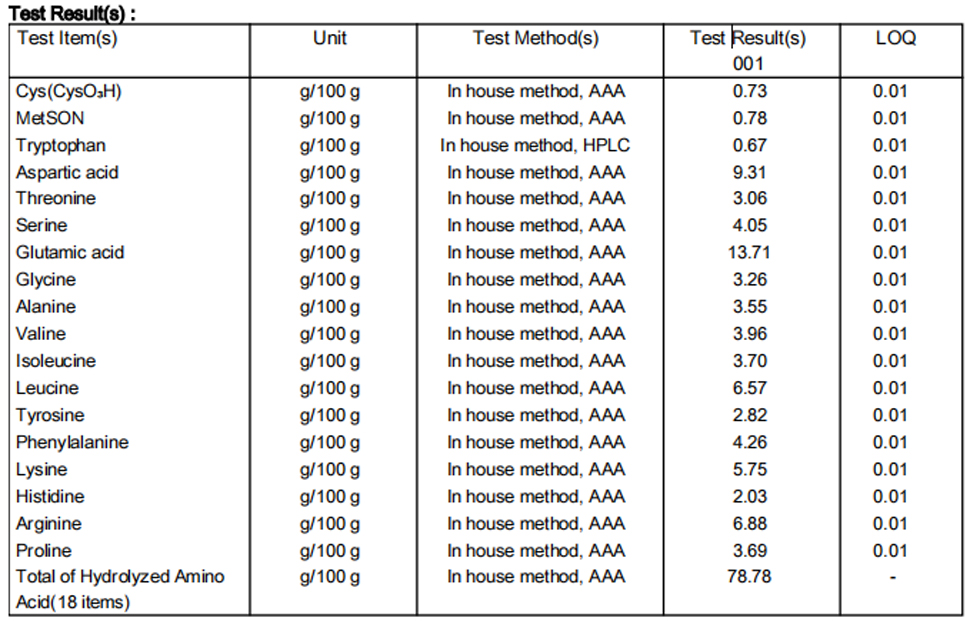L-carnitine— also known as levocarnitine —is an amino acid that occurs naturally in the body and is available as a supplement. It is a subtype of the substance carnitine, which aids in metabolism, and can be used to prevent a lack of carnitine.
L-carnitine produces energy in the body and removes toxins from cells. Because of this action, L-carnitine is sometimes taken as a supplement to lose weight and improve physical performance. Carnitine

This article will discuss the uses of L-carnitine and its role in the body.
L-carnitine is a crucial component of energy production in the body. It moves fatty acids into the cells to be converted into energy. L-carnitine also helps to move toxins out of the cells.
It may help with various symptoms of different diseases and conditions, as outlined below.
Alzheimer's disease is a progressive, neurodegenerative (wasting of the nerve cells in the brain) condition and the most common type of dementia. It can be treated by preventing the breakdown or increasing the levels of the neurotransmitter called acetylcholine.
Researchers have studied L-carnitine to determine if it can help produce acetylcholine.
A 2020 review of several articles regarding the use of L-carnitine for dementia and Alzheimer's disease found mixed results. Many of the studies reviewed showed favorable outcomes with L-carnitine use, whereas other studies showed minimal to no results.
Further research is needed on the effects of L-carnitine on people with Alzheimer's disease.
L-carnitine supplements might aid in cardiovascular health by decreasing inflammation markers and reducing the likelihood of fatal irregular heart rhythms in people with heart disease.
A study from 2017 found benefits from L-carnitine supplementation in people with chronic heart failure. Improvements in several areas of heart functioning, including cardiac output and left ventricular ejection fraction.
Other studies have found that L-carnitine supplementation caused negative effects on the cardiovascular system. Research still needs to be conducted to determine if L-carnitine supplementation is an effective treatment for cardiovascular disease.
L-carnitine moves fatty acids into the cells to produce energy, so it has been assumed that L-carnitine can help with weight loss. There are some studies that support this theory but more research is needed for conclusions to be drawn.
A literature review that looked at 37 randomized control trials found that L-carnitine decreased body weight by 1.21 kilograms (kg) (2.66 pounds). The weight reduction was primarily seen in people who also ate a low-calorie diet and exercised.
Carnitine preserves fuel for the muscles and promotes the breakdown of fats into energy. As a result, some people take L-carnitine supplements to improve their athletic performance.
However, research has shown no proof that L-carnitine supplements improve physical exercise performance.
L-carnitine has been used successfully to improve fertility. Research showed that supplementation improved sperm motility.
Other research has shown that L-carnitine supplementation improved ovulation and pregnancy rates in those with polycystic ovary syndrome (PCOS). Those people with PCOS who took the supplement had 64.4% higher ovulation rates. It also improved pregnancy rates and lessened miscarriages in those with PCOS.
Carnitine is made in the liver, kidney, and brain. The body stores 95% of carnitine in the heart and skeletal muscles. The body needs 15 milligrams (mg) per day of carnitine from either outside sources—like food—or the body making its own carnitine.
Most people who eat a diet in both meat and nonmeat sources will consume between 24 and 145 mg of carnitine each day. However, people who follow a vegan diet will likely consume only 1.2 mg per day.
Oddly enough, diet does not seem to influence how much carnitine the body makes. According to the National Institutes of Health, a person who eats a vegan diet still produces 14.4 mg of carnitine per day.
Since carnitine is a supplement the Food and Drug Administration (FDA) does not regulate it, and there are no suggested daily supplementation amounts.
L-carnitine is a type of carnitine. There are several forms of carnitine available for supplementation. They include:
Carnitine is typically taken as an oral supplement but can be given through an intravenous (IV) line.
There are potential side effects when too much L-carnitine is taken. They include:
Some medications, like those that treat seizures or antibiotics, lower the body's carnitine levels. Taking a carnitine supplement may help avoid this. Always talk to a healthcare provider before starting a carnitine supplement.
The best source of L-carnitine is in food. The body's ability to absorb L-carnitine in food is much higher than in a supplement. The best sources (listed from greatest source to lowest) of L-carnitine are:
L-carnitine is an amino acid that is produced in the body and is found in many animal-based food products. It produces energy and removes toxins from the cells. L-carnitine is often advertised as a supplement for weight loss, to improve physical performance, and more.
Research still needs to be done to confirm the effectiveness of L-carnitine supplementation. Always talk to a healthcare provider before starting a supplement as it may adversely interact with other medications or affect certain conditions.
National Institutes of Health. Carnitine.
Centers of Disease Control and Prevention. Alzheimer's disease and related dementias.
Pennisi M, Lanza G, Cantone M, et al. Acetyl-l-carnitine in dementia and other cognitive disorders: a critical update. Nutrients. 2020;12(5):1389. doi:10.3390/nu12051389
Song X, Qu H, Yang Z, Rong J, Cai W, Zhou H. Efficacy and safety of l-carnitine treatment for chronic heart failure: a meta-analysis of randomized controlled trials. BioMed Research International. 2017;2017:1-11. doi:10.1155/2017/6274854
Talenezhad N, Mohammadi M, Ramezani-Jolfaie N, Mozaffari-Khosravi H, Salehi-Abargouei A. Effects of l-carnitine supplementation on weight loss and body composition: A systematic review and meta-analysis of 37 randomized controlled clinical trials with dose-response analysis. Clinical Nutrition ESPEN. 2020;37:9-23. doi:10.1016/j.clnesp.2020.03.008
Gnoni A, Longo S, Gnoni GV, Giudetti AM. Carnitine in human muscle bioenergetics: can carnitine supplementation improve physical exercise? Molecules. 2020;25(1):182. doi:10.3390/molecules25010182
Mendelson SD. Nutritional supplements and metabolic syndrome. In: Metabolic Syndrome and Psychiatric Illness. Elsevier; 2008:141-186. doi:10.1016/B978-012374240-7.50012-7
By Patty Weasler, RN, BSN Patty is a registered nurse with over a decade of experience in pediatric critical care. Her passion is writing health and wellness content that anyone can understand and use.
Thank you, {{form.email}}, for signing up.
There was an error. Please try again.

Wpi Protein By clicking “Accept All Cookies”, you agree to the storing of cookies on your device to enhance site navigation, analyze site usage, and assist in our marketing efforts.